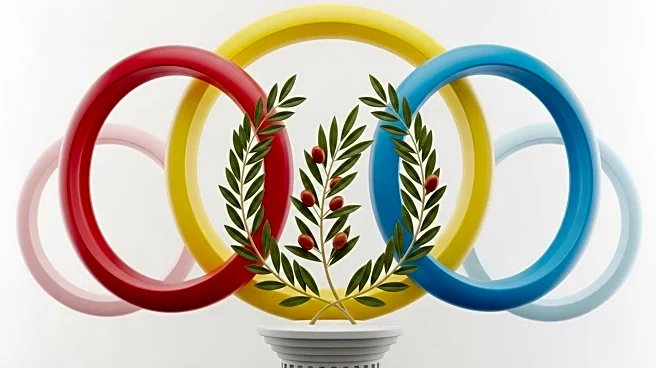What's Happening?
The International Olympic Committee (IOC) has confirmed that Israeli athletes will continue to compete under their national flag at the 2026 Winter Olympics in Milan and Cortina d’Ampezzo. This announcement comes amidst ongoing discussions about the participation of various national delegations. IOC President Kirsty Coventry emphasized that suspending Israel from the Games is not being considered, despite calls for exclusion due to the ongoing conflict in Gaza. Coventry reiterated the Olympic Games' role as a platform for peaceful competition and a beacon of hope for athletes worldwide. The IOC maintains its stance on prohibiting Russian and Belarusian athletes from competing under their national flags following Russia's invasion of Ukraine in 2022, allowing them to participate only under a neutral flag.
Why It's Important?
The IOC's decision to allow Israel's participation underscores the organization's commitment to maintaining the Olympic Games as a neutral ground for international athletes, regardless of geopolitical tensions. This decision could have significant implications for international sports diplomacy, as it highlights the IOC's stance on separating sports from political conflicts. The move may also influence other international sporting bodies facing similar pressures to exclude nations based on political disputes. For Israel, continued participation in the Olympics is crucial for its athletes and national pride, while the decision may also impact the broader Middle Eastern geopolitical landscape by reinforcing Israel's presence in global sporting events.
What's Next?
As the 2026 Winter Olympics approach, the IOC will likely continue to face scrutiny and pressure from various international groups regarding the participation of countries involved in geopolitical conflicts. The organization will need to balance its commitment to neutrality with the growing calls for political accountability in sports. Security measures will be a top priority for the upcoming Games, as emphasized by Coventry, to ensure the safety of athletes, fans, and all participants. The IOC's decisions in the lead-up to the Games will be closely watched by international stakeholders, potentially setting precedents for future sporting events.










